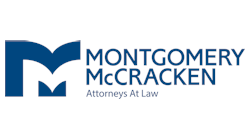
This article originally appeared in the November 2020 issue of Security Business magazine. When sharing, don’t forget to mention @SecBusinessMag on Twitter and Security Business magazine on LinkedIn.
COVID-19 has impacted every aspect of our lives – from schools, to sports, to the broader economy – and the judicial system is not immune. As the pandemic has evolved, so have the courts, which needed to strike a balance between maintaining operations with the need to keep judges, court personnel, attorneys, and litigants safe.
In normal times, courthouses are busy places – with high volumes of people passing through court buildings every day. Over the past several months, however, many federal and state courts across the country have either closed completely, limited access, or changed the way they do business. This becomes essential information for integrators serving these facilities.
Federal Courts
To facilitate the operation of federal courts, a set of Federal Judiciary COVID-19 Recovery Guidelines was issued in April 2020. Because the pandemic impacted the country at different times and in different ways, each federal court was empowered to use the Recovery Guidelines as local circumstances required.
In phase one – which some courts were in for months – courthouses were closed to the public, employees worked remotely, and most judicial proceedings were postponed. This was complicated logistically and legally, as it imperiled some new filings, resulted in innumerable delays, and presented constitutional challenges for criminal cases (such as the right to a speedy trial (which the courts later extended).
Phase two allowed key personnel to return and attempted to get cases moving again. Phase three allows for full staffing – subject to screening and cleaning measures – plus accommodations for court personnel at greatest risk. Phase four calls for the resumption of all normal activities, which obviously remains a challenge for many federal courts even today.
Given the power and reach of the federal judiciary, we can expect federal courts to continue to adapt and meet the needs of the citizens they serve.
State Courts
Like the federal courts, state courts also experienced many closures and delays as a result of COVID-19; however, unlike federal courts, state courts do not operate cohesively and do not have access to the same resources as federal courts.
Some state courts suspended operations; others continued operations, but suspended jury trials. Some continued jury trials, but excused any potential jurors over the age of 60 (as such jurors are at higher infection risk). Many courts conducted and continue to conduct hearings and even trials over videoconference or other virtual meeting platforms.
In my law practice, I handle litigation matters across the country. Consequently, the use of virtual meeting technology has been essential.
Some states issued directives – either through the legislature or by executive order – limiting certain lawsuits. For example, some states prohibited certain private civil actions such as mortgage foreclosures and evictions, which has helped borrowers keep their properties, businesses stay in their facilities, and individuals keep their homes. Some banks and landlords have challenged these prohibitions, asserting that they constitute “takings” – meaning a violation of a private property right without just compensation. Some of these claims may be litigated for years, even at the U.S. Supreme Court.
Practical Implications on the Courts
Ultimately, despite the best intentions, the pandemic has resulted in a tremendous backlog of cases in federal and state courts. This means that already overburdened courts will take even longer to render decisions, schedule trials, and dispose of cases. It also means that some courts will take shortcuts – not giving attention to matters which deserve them. This can lead to poorly reasoned decisions and, ultimately, bad law.
Since COVID-19, there have not been many landmark court rulings in the security industry. Perhaps the most significant was the U.S. Court of Appeals for the 11th Circuit’s ruling in July that the City of Sandy Springs, Ga., can issue fines to alarm companies for false alarms caused by their customers; however, this ruling did not require in-person courtroom arguments.
Expect rulings to increase as the state courts continue to address the backlog.
Timothy J. Pastore, Esq., is a Partner in the New York office of Montgomery McCracken Walker & Rhoads LLP (www.mmwr.com), where he is Vice-Chair of the Litigation Department. Before entering private practice, Mr. Pastore was an officer and Judge Advocate General (JAG) in the U.S. Air Force and a Special Assistant U.S. Attorney with the U.S. Department of Justice. Reach him at (212) 551-7707 or by e-mail at [email protected].

Timothy J. Pastore, Esq.
Timothy J. Pastore Esq., is a Partner in the New York office of Montgomery McCracken Walker & Rhoads LLP (www.mmwr.com), where he is Vice-Chair of the Litigation Department. Before entering private practice, he was an officer and Judge Advocate General (JAG) in the U.S. Air Force and Attorney with the DOJ. [email protected] • (212) 551-7707
Meet Timothy J. Pastore
Timothy J. Pastore, Esq., is the newest columnist to join the Security Business magazine family. He is a Partner in the New York office of Montgomery McCracken Walker & Rhoads LLP (www.mmwr.com), where he is Vice-Chair of the Litigation Department.
Before entering private practice, Mr. Pastore was an officer and Judge Advocate General (JAG) in the U.S. Air Force and a Special Assistant U.S. Attorney with the U.S. Department of Justice. As a JAG, in particular, Mr. Pastore was legal counsel to the Air Force Security Forces and Air Force Office of Special Investigations.
Mr. Pastore has represented some of the largest companies in the security industry, including Protection One, Comcast, Charter, Cox, Altice, Mediacom, IASG, CMS and others. He regularly provides counsel on risk management, contracting, operations, licensing, sales practices, etc. Mr. Pastore also has served as lead counsel in courts throughout the country in dozens of litigation matters involving the security industry.
Among other examples, Mr. Pastore led the successful defense at trial of cable giant Comcast in a home invasion case in Seattle, Washington. The case received significant press attention and was heralded by CVN as a top-ten defense verdict.
Mr. Pastore is a graduate of Bucknell University and Boston College Law School.
Reach him at (212) 551-7707 or by e-mail at [email protected].



